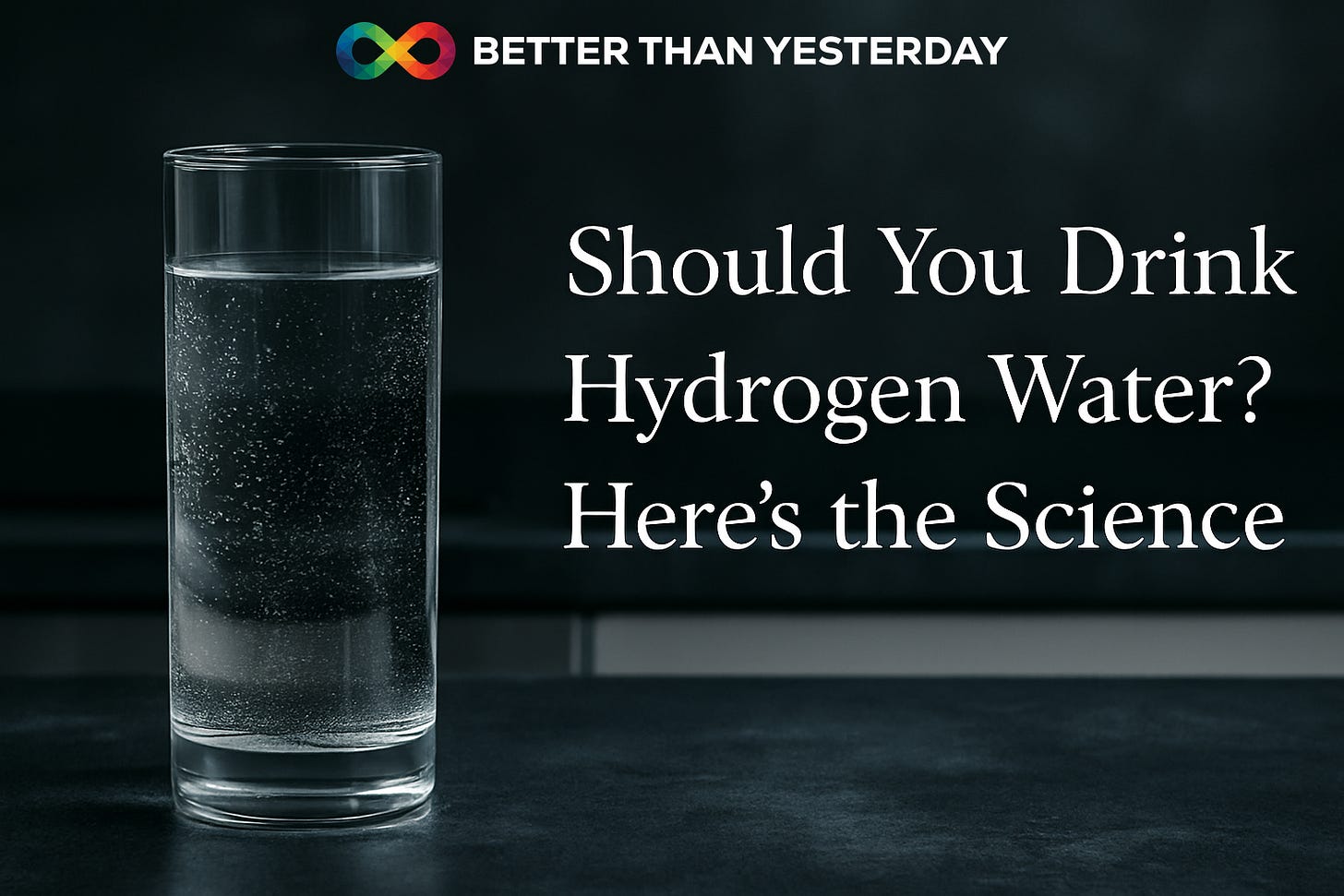Hydrogen Water: Biohack or Hype?
What happens when you mix the tiniest molecule on Earth with your water bottle? Maybe... more than you'd expect.

Hydrogen water is everywhere lately. Wellness brands are pushing it, athletes swear by it, and some biohackers are calling it the next “mitochondria juice.”
So, is it legit?
I had a look into the scientific studies, not the influencer talk, real peer-reviewed data, and here's what I found.
🧬 What is hydrogen water?
It’s just regular water… with extra hydrogen gas (H₂) dissolved inside.
Sounds boring, right?
But that tiny gas might actually do something. See, H₂ is so small it can slip into your cells, your mitochondria, even your brain. And unlike typical antioxidants that can sometimes cause imbalance, hydrogen is selective: it only targets the worst free radicals (like hydroxyl and peroxynitrite).
Translation? Less cellular damage, more resilience.
⚡️ What does it actually do?
✅ Reduces oxidative stress
Oxidative stress = aging.
In a clinical study on cancer patients receiving radiotherapy, hydrogen water lowered oxidative damage markers without interfering with treatment. Patients also reported better energy and appetite.
(Study – PMC3231938)
✅ Lowers inflammation
When athletes drank hydrogen water during 8 weeks of intense training, their levels of IL-6 and TNF-α (inflammatory markers) rose less than the control group. That’s a big deal if you're biohacking recovery.
(Study – PMC6352569)
✅ Speeds up recovery
In elite athletes doing hard exercise, hydrogen water helped reduce muscle fatigue, soreness, and lactate buildup. Faster bounce-back = more gains.
(Study – PubMed 22520831)
✅ Calms the mind
One small study gave hydrogen water to healthy adults for 4 weeks. Result? Less anxiety, improved mood, and better autonomic balance (your nervous system on chill mode).
(Study – PMC5806445)
✅ Might slow biological aging
This one blew my mind. In older adults, 6 months of drinking hydrogen-rich water led to longer telomeres, those little caps that protect your DNA. Usually, telomeres shrink with age. Here, they grew.
Plus, a longevity gene (TET2) went up.
(Study – PubMed 34601077)
🚫 Risks?
Basically none.
Hydrogen gas is non-toxic, and any excess just gets breathed out. It’s already approved as safe by health agencies in Japan and the US.
The real problem? Most studies are small.
We’re talking 20–40 people, short timelines. Promising results, yes. But not enough to claim it’s a miracle.
Also: hydrogen evaporates quickly. So if you're buying bottled HRW that sat on a shelf for a month? Probably useless.
🧪 Should you try it?
If you're an athlete, a biohacker, or just someone optimizing recovery and longevity... it might be worth testing.
Think of it like a bonus tool. It's not a replacement for good sleep, nutrition, or training, but it's low-risk, and the upside looks real.


